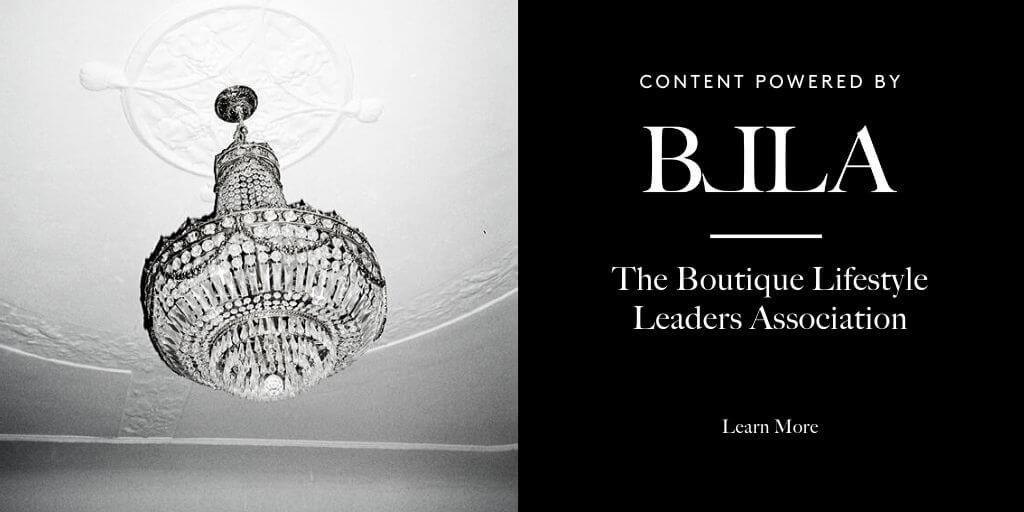To bring as much information as possible to the forefront during these concerning times, BLLA has partnered with Lockton Global – the world’s largest independent insurance brokerage firm – to assemble this webinar hosted on March 27, 2020. In it, Lockton’s experts touch on several critical topics crucial to boutique business owners.
Potential for Unprecedented Losses
Rich Roderick, Executive Vice President and Partner, Lockton Insurance, cautions the industry that this is a very volatile time of economic pullback. He explains the industry should expect cash flow disruptions for some time:
● Unemployment could reach 3.28 million, which is five times greater than other historical periods of recession.
● Hotels, restaurants, and travel will absorb a $225 billion loss. Currently, revenue is down by 91% in California, the worst-hit state. Overall, the nation’s hotels stand at about 30% occupancy.
● By some estimates, GDP will fall to -3.8% or even lower, five times worse than the period immediately following 9/11.
● Though recovery is expected to be more rapid for the hotel industry than other sectors, it will still take two to three quarters.
Capitol Hill Update
Scott Behrens, JD: Director of Government Relations, reports that Congress has recently completed three sets of federal regulations aimed at protecting small businesses and their employees:
● The first allowed an increase in SBA funding for loans up to $2 million – some of these funds are still available for use. View our guide about the CARES Act here.
● The second, known as the Families First Act, ensures paid time off for employees who have had interruptions in childcare due to school closures, as well as protections for businesses under 500 employees who must provide it.
● The third increases access to loans and grants for businesses and provides direct economic assistance to expand the unemployment safety net. In it, businesses can apply through June 30th for fully backed loans that may be forgivable in the future due to disaster regulations; businesses may be eligible for a $10,000 advance and payroll tax relief for two years.
● We may also see another relief package by the end of April, though its contents are still disputed.
Compliance Update
Edward Fensholt, JD: Director, Compliance Services, stresses health insurance compliance during these times is key. Primarily, he reminds small businesses:
● You control eligibility, so check your healthcare coverage plans to ensure they reflect your current needs.
● If you make changes, remain vigilant that employee hours and coverage eligibility align.
● Always clear changes in eligibility with your carrier asap – then amend the coverage with retroactive dates.
● HDHP and HSAs once required pay-in for any care below the deductible. However, the IRS now allows HDHP to pay for any COVID-19 testing and treatment below the deductible and extended HSA contribution deadlines to July 15.
● If you’re making changes, the WARN Act requires you to notify employees 60-90 days in advance; while recent events exempt most from this large window, you must still notify employees as soon as reasonably possible or pay 60 days worth of coverage.
Employee Leave and Benefits Guidance
Brian D. Murphy: Partner, Sheppard, Mullin, Richter, and Hampton LLP elaborates on the Families First Act in response to the COVID-19 pandemic. In particular, he reiterates the importance of the leave guidelines stated within:
● The Act is effective April 1st and applies to businesses with 500 or fewer employees (though some entities with multiple locations may receive a small business exception) and ensures employees are able to care for children during school closure.
● Employees receive 12 weeks of job protected leave – 2 weeks unpaid and 10 weeks paid at ⅔ the regular wage not to exceed $200/day or $10,000 total.
● Employers cannot force employees to use paid leave.
● Employers can apply for a tax credit worth the same $200/day and $10,000 total.
● Businesses with fewer than 50 employees are exempt from compliance; there’s no application process, but business owners must document the exception.
● For quarantine orders, those with symptoms or seeking diagnosis, or caring for a quarantined person, employees are allowed 80 hours of paid sick leave with a $200 – $511 cap per day depending on the reason.
● Employers can apply for a tax credit to cover paid sick leave.
For boutique establishment owners needing to reduce overhead, a reduction in wages or hours for employees may be necessary. Choices will have varying impacts:
● Reduction in wages for hourly employees must remain above the minimum wage. In addition, you must pay for all hours worked.
● Reduction in wages for salaried employees must be above the applicable salary threshold and you must provide advanced notice.
● Reduction in hours for hourly employees can be reduced to zero without advance notice.
● Reduction in hours for salaried employees has negligible benefits – if these employees work at all during a given week, they’re entitled to their full salary. You must enforce no work.
● Telecommuting has all the same legal considerations regarding wage and hours as on-site work – reinforce your hours expectations and discipline all deviations.
Finally, Mr. Murphy advises all employers to learn the differences among the words furlough, layoff, and termination. Compliance is especially important to avoid financial penalties after the pandemic ends. Key distinctions include:
● Furloughed employees are still employed but see reduced or no work. They are still eligible for paid time off, employee benefits, and unemployment benefits.
● Laid off employees are considered terminated with the expectation of recall. Their benefits are terminated but they may seek unemployment and severance.
● Terminated employees have no expectation of recall. All employee benefits terminate as well, but they may seek unemployment and severance.
Business Interruption Insurance Explanation
Paul Primavera: Executive Vice President, Claims National Practice Leader, addresses what is perhaps the most common question many boutique establishment owners have – can businesses closed by government order or other COVID-19 concerns file business interruption insurance claims? He explains current guidance:
● Business interruption insurance is an all risk property policy.
● Most of these policies only trigger coverage when actual physical damage occurs to the property. Since most COVID-19 closures do not cause physical damage, the claims will require unique arguments. He anticipates this will be a hotly disputed subject.
● Coverage extensions may be provided for business interruption and contingent business interruption, such as expenses for evacuating and disinfecting buildings with proof of active infections.
● Closure by civil authority is less likely to receive coverage.
● Currently, most carriers have exclusions for contamination specific to biological elements and viruses and are expected to continue to protect themselves against COVID-19 claims coverage.
● The government has not announced intentions to require business interruption insurance coverage for COVID-19, leaving carriers with the ultimate authority over their own coverage. Currently, most require business owners to report losses within 24 to 48 hours.
● Overall, Mr. Primavera strongly recommends proactive documentation of all expenses already incurred and ongoing damages. If coverage denials are eventually overturned or if the government enforces coverage, hotel owners will have detailed records of all COVID-19 losses.
Keep the Boutique Spirit
Overall, BLLA, Lockton, and all the experts reporting in our webinar encourage boutique establishment owners to continue to reach out during these uncertain times. We will continue to provide assistance, guidance, and insight whenever possible. Most importantly, maintain the #boutiquestrong spirit – we can, and will, get through this together.

